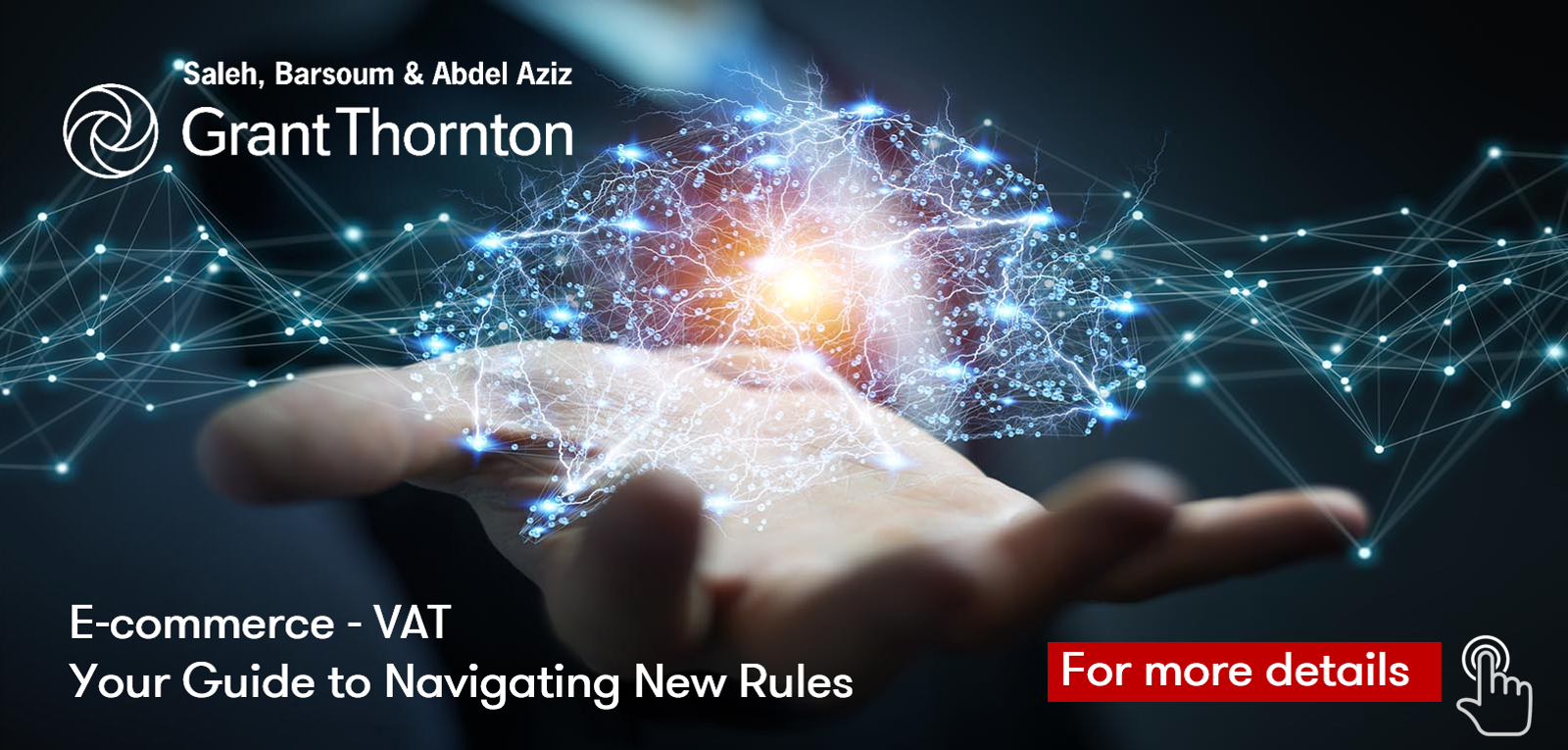- Could the government sell 10% of TE this week? (What We’re Tracking Today)
- FRA approves National Paints Holding’s bid for Pachin, triggering MTO (Privatization Watch)
- Two state-owned real estate players want to bring in strategic investors (Privatization Watch)
- Gov’t could raise income tax exemption threshold to EGP 36k (Economy)
- Kaf receives license to provide commercial life ins (Financial Services)
- Wage, pension hikes given initial House approval amid criticism (Legislation Watch)
- Orascom Development Egypt reports record earnings in 2022 (Earnings Watch)
- UBS agrees to acquire Credit Suisse following high stakes talks to avert banking meltdown (What We’re Tracking Today)
- Palestine, Israel agree to de-escalate tensions in Egypt-mediated Sharm talks. (Diplomacy)
- How K-12 teachers are adapting to the use of generative AI in education. (Blackboard)
- The GCC is probably the fastest-growing economic bloc in the world today (A Message from HSBC)

Monday, 20 March 2023
AM — Privatization is continuing to dominate the news flow
TL;DR
WHAT WE’RE TRACKING TODAY
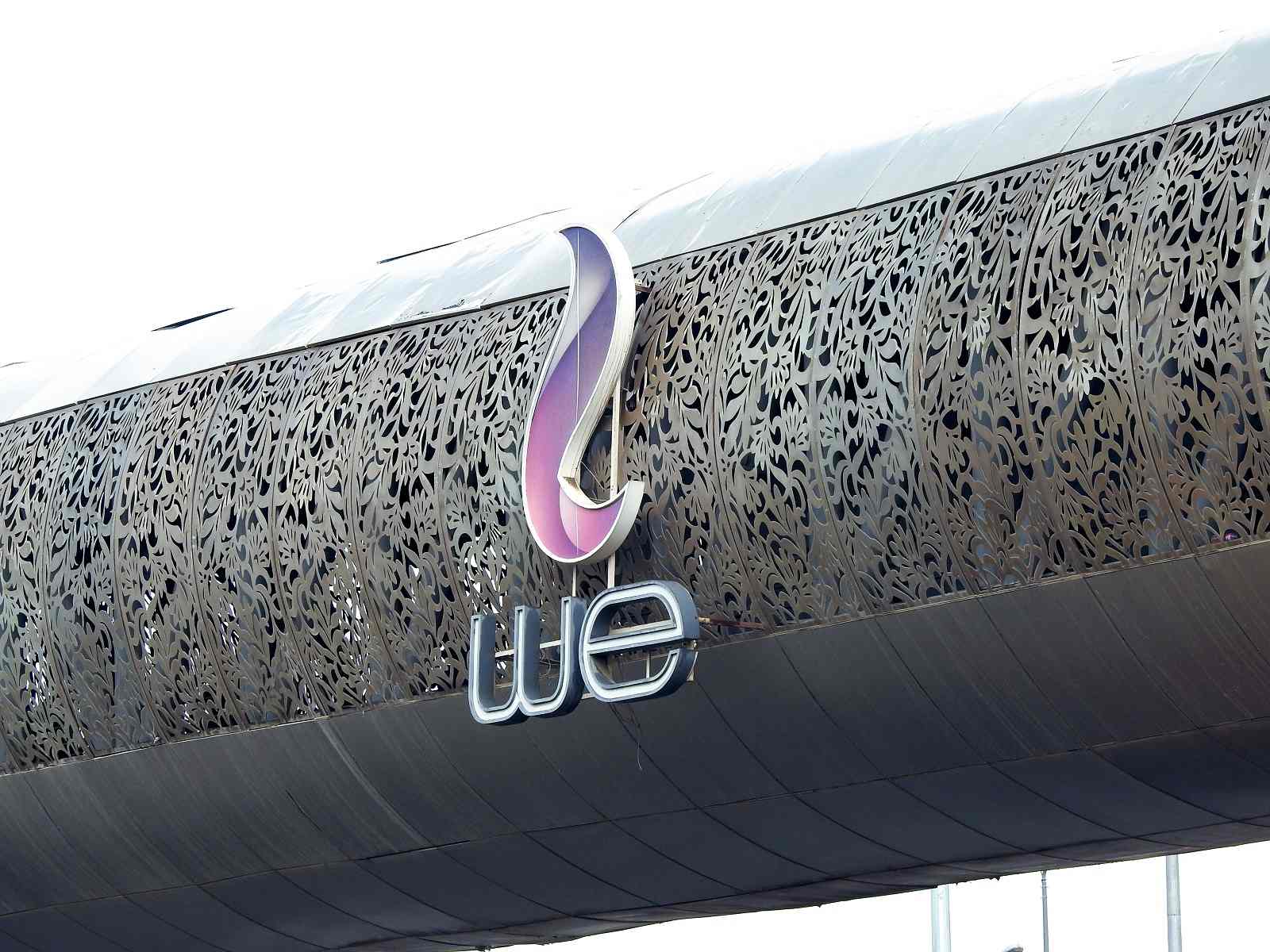
Good morning, friends. The usual pre-Ramadan acceleration of news continues this morning, so let’s jump straight in:
THE BIG STORY HERE AT HOME: Privatization, privatization and still more privatization, as this morning’s tl;dr stack (above) suggests.
ABROAD: Will concerted action by a group of central banks and UBS’ move to acquire Credit Suisse calm global markets?
HERE AT HOME- Gov’t could offload 10% of TE this week: The Madbouly government will finalize the sale of a 10% stake in national telecoms provider Telecom Egypt (TE) to a Gulf investor this week, Al Borsa reports, citing as its source an unnamed Finance Ministry official. Transaction managers CI Capital and Al Ahly Pharos are awaiting final approvals to transfer the shares to the buyer, the source said. The Finance Ministry said earlier this month that it’s looking to sell shares in the company after Reuters reported the state was offloading 10% to investors. Hapi Journal then reported that the government could close the sale before Ramadan, citing anonymous sources.
Mobile plans could get pricier: The National Telecommunications Regulatory Authority (NTRA) will soon unveil its decision to allow telecom providers to raise their prices or keep them unchanged, unnamed sources reportedly told Al Borsa. Telecom service prices have remained unchanged since 2017 and providers have been calling for a chance to hike their prices.
WATCH THIS SPACE- GAFI wants to hand out 1k golden licenses over the next two years and is set to launch a roadshow during 1H 2023 to drum up foreign direct investment, Al Borsa quotes GAFI head Hossam Heiba as saying.
REFRESHER- Golden licenses are fast-tracked, single-approval licenses for industrial and infrastructure projects in sectors that are deemed to be of developmental priority. These licenses — the first of which was awarded in December — have been awarded to 13 companies so far. Read more about them in our explainer here.
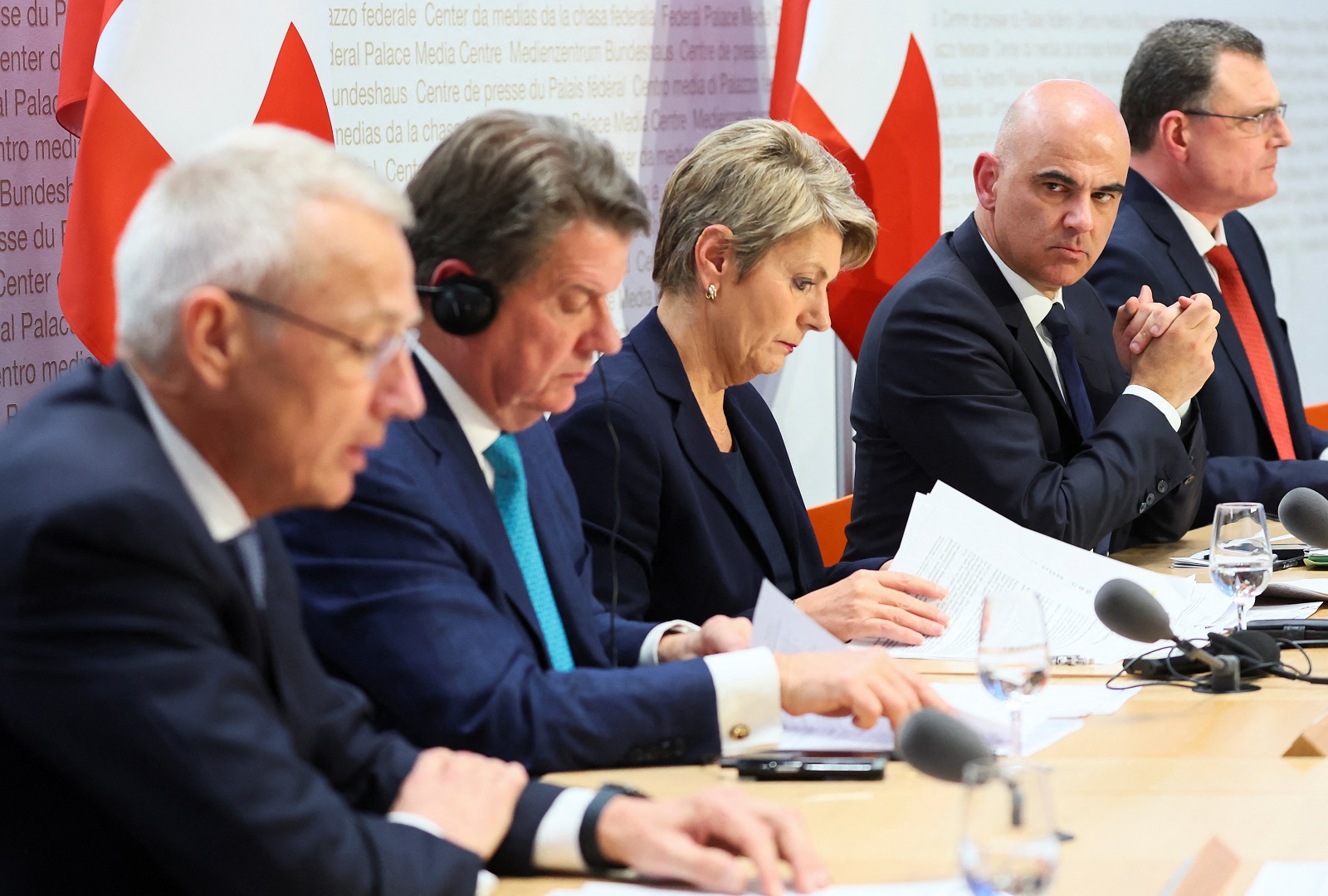
THE BIG STORY ABROAD-
Banking crisis averted? UBS will acquire embattled competitor Credit Suisse after high-stakes talks with Swiss regulators over the weekend aimed at averting the meltdown of the country’s second-largest bank. The Swiss banking giant agreed to acquire the lender for USD 3.3 bn in return for receiving up to CHF 100 bn in liquidity from the Swiss central bank. Credit Suisse, a systemically important bank, was left on the verge of collapse last week after the banking crisis in the US triggered a run on deposits and a steep share sell-off. The Swiss central bank handed it an emergency USD 54 bn loan last Wednesday which failed to stem the bleeding.
As part of a coordinated bid to calm markets, the US Federal Reserve and five other major central banks have opened daily swap lines to supply USD to global financial markets — an emergency measure last put in place during the 2020 covid-19 market collapse. The Fed has also ramped up lending to troubled US banks over the past week, handing over USD 300 mn to help stabilize the banking system.
WHAT TO WATCH FOR- Market watchers are now turning to the Fed’s interest rate decision on Wednesday. Also under the microscope: How bondholders react to the wipeout of Credit Suisse’s contingent convertibles, and how US banks fare in the coming weeks, Bloomberg has more.
REAX- The market is in wait-and-see mode: Stock futures in the US and Europe are made light gains, the USD index is treading water, and oil futures are up around 0.4%. Asian shares, meanwhile, are broadly in the red.
The news is getting coverage from: Financial Times | Reuters | AP | Bloomberg | CNBC | BBC | Wall Street Journal.
MEANWHILE- China continues to push on the diplomatic front:
- “Russia is open to the political and diplomatic resolution of the Ukraine crisis,” Russian President Vladimir Putin wrote in an article published in a Chinese newspaper ahead of talks with Chinese President Xi Jinping in Moscow.
- Iranian President Ebrahim Raisi has been invited to visit Riyadh, Iranian state media reported yesterday. The two sides earlier this month agreed to restore diplomatic ties in a China-brokered agreement.
|
HAPPENING TODAY-
The Finance Ministry’s two-day Public-Private Partnerships MENA Forum concludes at the Nile Ritz-Carlton.
Another US official is in town: It’s Assistant Secretary of State for Near Eastern Affairs Barbara Leaf’s final day in Egypt. Leaf is in Egypt as part of a regional tour that will see her travel to Lebanon and Tunisia.
ON THE AGENDA IN THE HOUSE- The House of Representatives has a busy day ahead as it continues to catch up after a three-week break that ended yesterday.
- The Industry Committee will be joined by Trade and Industry Minister Ahmed Samir to discuss the government’s strategy to increase industrial exports.
- The Tourism Committee will look into requests to raise the price of museum tickets.
- The Health Committee will review the performance of public hospitals and medical centers.
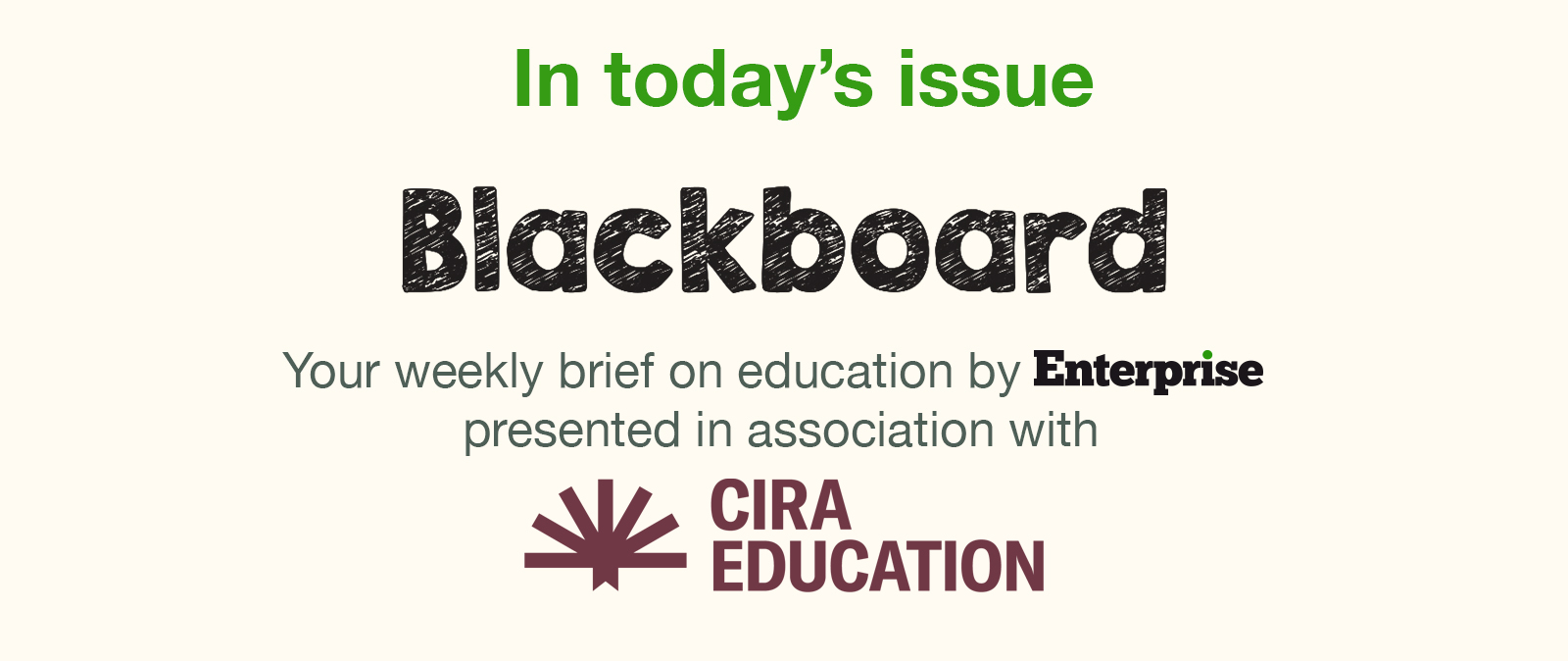
*** It’s Blackboard day: We have our weekly look at the business of education in Egypt, from pre-K through the highest reaches of higher ed.
Somabay brings out the best in majestic natural elements where raw beauty and endless activities reign supreme. Immerse yourself into a picturesque getaway all year long. This is simply Somabay. For more information, call 16390 or visit www.somabay.com.
PRIVATIZATION WATCH
FRA approves National Paints Holding’s bid for Pachin

The clock is ticking for Pachin shareholders: Shareholders of state-owned, EGX-listed Paint and Chemical Industries (Pachin) will have 10 working days to respond to Dubai-based National Paints Holding’s (NPH) takeover bid after the Financial Regulatory Authority (FRA) yesterday approved the offer, the regulator said in a statement (pdf). The 10-day mandatory tender offer (MTO) starts Tuesday, giving shareholders until 3 April to decide whether to sell their shares.
REFRESHER- NPH has offered to purchase at least 75% of Pachin’s shares for EGP 34.00 a share, valuing it at some EGP 816 mn. The company upped its offer earlier this month from its initial EGP 29.00 bid in November in response to a number of competing bids. Shareholders owning at least 75% of the company’s shares will need to agree to sell for the acquisition to go through, the FRA said yesterday.
Shareholders: Pachin is majority-owned by state institutions, with Chemical Industries Holding owning 44.6% of and Banque Misr holding a 10.5% stake. Other major shareholders include AMN Industrial Investment with a 9.7% stake and El Sayed Saber with 5.5%. Some 28.7% of its shares are freefloat.
We’re yet to hear from Pachin’s other potential suitors: Compass Capital and Eagle Capital have also submitted bids for the company in recent months, with Compass offering to purchase 51-90% of its shares for EGP 30.00 apiece and Eagle mounting a takeover bid for EGP 29.00 per share.
What Pachin’s future would look like if NPH’s acquisition goes through: NPH is committing to maintaining Pachin’s existing workers for the first 12 months after the acquisition, according to the FRA statement. Pachin’s shares would undergo voluntary delisting from the EGX within six months of the acquisition closing.
What’s next: If the shareholders accept the offer, the transaction will be concluded on the EGX within the following five working days, according to the statement.
Market reax: Pachin’s shares closed up 5.0% to settle at EGP 32.50.
Advisors: Al Ahly Pharos is acting as broker on the transaction, Matouk Bassiouny & Hennawy are acting as NPH’s legal counsel, while the company doesn’t have a financial advisor, according to the statement. Al Ahly Pharos is advising Pachin, and Shalakany Law Office is legal counsel.
PRIVATIZATION WATCH
Two state-owned real estate players want to bring in strategic investors

Two state-owned real estate companies seek investment through capital increases: State-owned real estate companies El Nasr Housing and Development and Maadi for Development and Construction will drum up investments from strategic investors through capital increases rather than selling stakes from existing shareholders, a source with knowledge of the matter told Enterprise yesterday on condition of anonymity. The two companies are part of the list of 32 state-owned companies in which the Madbouly government plans to sell stakes over the next year. Further information about the potential transactions wasn’t disclosed.
Any suitors in sight? “The two real estate players have received several offers in the past but the companies are currently re-evaluating the financial valuation of their assets and conducting a revised internal fair-value study,” our source said.
What’s next? The Holding Company for Construction and Development (HCCD) — the parent company of El Nasr Housing and Maadi for Development — is currently working on hiring advisors on the potential transaction, said the source, adding that making public share offerings in the two companies will come at a later stage.
REFRESHER- The government plans to sell stakes in 32 state-owned companies over the next year under a rebooted privatization program designed to pull the country out of its financial crisis and secure much needed FX. The state will offer shares to strategic investors, via offerings on the EGX and a mix of both over the next 12 months. The government could add another eight names to its list of companies destined for privatization, Finance Minister Mohamed Maait said last week, without elaborating.
ECONOMY
Yet another income tax exemption increase. PLUS: Gov’t trims growth forecast.

A more generous income tax break could be in the offing: President Abdel Fattah El Sisi has directed the government to raise the personal income tax exemption threshold to EGP 36k from EGP 24k currently, Ittihadiya said yesterday. Companies account for the majority of what the government collects under the tax, charging and remitting it as wage taxes on every person they employ.
This is more than we expected: The government said earlier this month that it plans to raise the exemption threshold to EGP 30k from 1 April.
SOUND SMART- There are technically two income tax exemptions in Egypt. Everyone, regardless of income, pays no tax on the first EGP 9k of their income. People who earn less EGP 600k a year also have a 0% tax band on top of that, which is currently set at EGP 15k. Together, these exemptions mean that employees in the lowest income bracket are not subject to wage taxes on the first EGP 24k of their income.
Both of these exemptions will increase under the proposed changes: The personal allowance will increase from EGP 9k to EGP 15k, and the 0% tax band will rise from EGP 15k to EGP 21k. This will mean that lower earners will pay no tax on the first EGP 36k of their incomes.
The changes are expected to impact some 22 mn people, a source at the Finance Ministry told Enterprise yesterday.
The new higher rate tax band is here: Taxpayers earning more than EGP 800k a year will pay tax at a new higher rate of 27.5% under the changes, the source told us. We first heard about the proposals for a new higher rate tax band last year.
Anything over EGP 36k will be taxed according to the following rates (inclusive of the EGP 9k personal allowance), our source told us:
- Incomes between EGP 36,001-45,000 will be taxed at 2.5%;
- The following EGP 45,001-60,000 will be taxed at 10%;
- The following EGP 60,001-75,000 will be taxed at 15%;
- The following EGP 75,001-215,000 will be taxed at 20%;
- The following EGP 215,001-415,000 will be taxed at 22.5%;
- The following EGP 415,001-800,000 will be taxed at 25%;
- Anything over EGP 800k will be taxed 27.5%.
The tax breaks could be applied as soon as next month, head of the Tax Authority’s central administration, Saeed Fouad, said in an interview on Kelma Akhira last night (watch, runtime: 10:15). The measures still need cabinet approval before heading to the House, he said.
The cost: The tax cuts will cost the public purse more than EGP 10 bn, our source said. The government will recoup some of this with the new higher rate band but this is expected to bring in only EGP 2 bn, they said.
BUDGET WATCH-
The government has trimmed its GDP forecast for the coming fiscal year and will now target 5.0% growth in FY 2023-2024, down from a 5.5% projection at the end of last year, according to the Ittihadiya statement. This came from Finance Minister Mohamed Maait, who shared some of the key targets in the upcoming budget during a meeting with President El Sisi. The ministry is now looking at a 2.5% primary surplus in 2023-2024, up from its 2.0% forecast in December, and a 6.4% budget deficit. The deficit is expected to widen to 6.8% of GDP this year from 6.1% in FY 2021-2022.
In + out: The Finance Ministry is projecting revenue growth to outpace spending. Figures in the draft budget see revenues jumping more than 31% to EGP 2 tn and spending rising 30.5% to more than EGP 2.8 tn, Maait said.
FINANCIAL SERVICES
Kaf receives license to provide commercial life ins

Kaf is now a commercial life ins. provider: Kaf Life Ins. has obtained a commercial life ins. license from the Financial Regulatory Authority (FRA), making it the first Egyptian insurer to make the switch from being a shariah-compliant takaful provider, it said in a statement (pdf) yesterday.
About Kaf: Kaf offers life, savings and health ins. services and is looking to distinguish itself through its use of tech. Kaf currently targets employers, small businesses and micro segment enterprises.
Part of a wider rebranding: EFG Finance (the non-bank financial services arm of EFG Hermes) and GB Capital rebranded life ins. company Tokio Marine Egypt Family Takaful as Kaf following their acquisition of a majority stake in the company in 2020. The two companies acquired a combined 75% stake (with each company holding 37.5%) in the Japanese company’s Egyptian subsidiary for EGP 84.75 mn. Tokio Marine Egypt’s Japanese parent company holds the remaining 25% stake.
New management announced: George Ghobrial (LinkedIn) was appointed CEO and managing director of Kaf in February following approval from the FRA, the release said. He succeeds Sohail Ali, who was brought in as the new CEO by EFG Finance and GB Capital after the acquisitions. Kaf has also appointed a new COO Rafik Samy (LinkedIn).
LEGISLATION WATCH
Wage, pension hikes given initial House approval amid criticism

House gives initial approval to wage, pension hikes + call on gov’t to do more: Some lawmakers called on the government to do more to curb soaring inflation yesterday as the House gave preliminary approval to the latest round of wage and pension hikes.
ICYMI- The package of measures voted on yesterday will raise salaries and the minimum wage for public-sector workers and hike pension payouts by 15% from 1 April. The government also plans to increase the personal tax exemption threshold and increase funding for the Takaful and Karama social protection program. The bill will be put up for a final vote in an upcoming session.
But some don’t think that’s enough: A number of pro-government and opposition MPs say the measures will not be enough to protect households from the soaring cost of living. “The new wage and pension hikes will help citizens bear the high cost of living for only one week because inflation rates are going higher all the time,” said Rep. Mostafa Bakry, a member of the pro-government Mostaqbal Watan party. “The government might be good at building bridges, but it is a complete failure on economic policies.”
Inflation is red hot right now: Food-price inflation reached all-time highs last month, driving headline inflation to its highest level since July 2017 and core inflation to a record level.
Pro-govt MPs call for price controls: Rep. Sabboura El Sayed and Rep. Mohamed Zeineddin, both of Mostaqbal Watan, urged the government to introduce price controls. “Without these urgent measures, the new wage and pension hikes will be of short-term impact like tranquilizers,” said Zeineddin.
MPs demanded that Prime Minister Moustafa Madbouly visit the House and explain his government’s policies. “Instead of holding a press conference every now and then, the prime minister can cross the street and come to the House to explain his government's plans on controlling soaring inflation and clamping down on monopolies,” said Rep. Ayman Abul Ela, a member of the liberal Reform and Development Party.
Global economic crisis to blame, says minister: Parliamentary Affairs Minister Alaaeddin Fouad defended the government’s record, saying that the government is doing its best to curb inflation, pointing to the role of external factors including the war in Ukraine.
ALSO APPROVED BY THE MPS- The bill to grant temporary licenses to informal industrial projects was given preliminary approval yesterday. The two-article bill would grant the Industrial Development Authority (IDA) the power to allow unlicensed projects to operate for a temporary one-year period while they work to legalize their positions. The temporary license could be extended by up to two additional years by the Trade Ministry, upon approval from the relevant authorities.
Pending approval: The House received a government-draft law on the proposed return of daylight saving. The draft law received the greenlight from the cabinet earlier this month. If passed the law would see Cairo Local Time (CLT) pushed forward by one hour from the last Friday of April through the last Thursday of October.
The House also received two loan agreements: A USD 301 mn facility from Japan to help finance Metro Line 4 and two USAID grants: one for economic governance and another for higher education.
EARNINGS WATCH
ODE notches record earnings in 2022

Orascom Development Egypt’s (ODE) net income rose 45% y-o-y to a record EGP 1.9 bn in 2022, according to its earnings release (pdf). Revenues increased 46% to EGP 10.3 bn during the period. ODE attributed the figures to rising property prices, which caused real estate revenues to rise 42% y-o-y to EGP 7.3 bn, as well as improved performance from its hotel and town management segments.
Net real estate sales hit an all-time high during the year, rising 21% y-o-y to EGP 11.1 bn — the highest sales figures in ODE’s history — after the company hiked prices by up to 25%. O West accounted for more than half the new sales, followed by El Gouna and Makadi Heights, which contributed 40% and 8% of sales, respectively.
The group’s hotel portfolio and town management segment recorded strong growth: The hotel segment reeled in revenues of EGP 1.6 bn in 2022, up 81% y-o-y, while the town management segment saw a 36% increase in revenues, which came in at EGP 1.4 bn.
A MESSAGE FROM HSBC
The GCC is probably the fastest-growing economic bloc in the world today
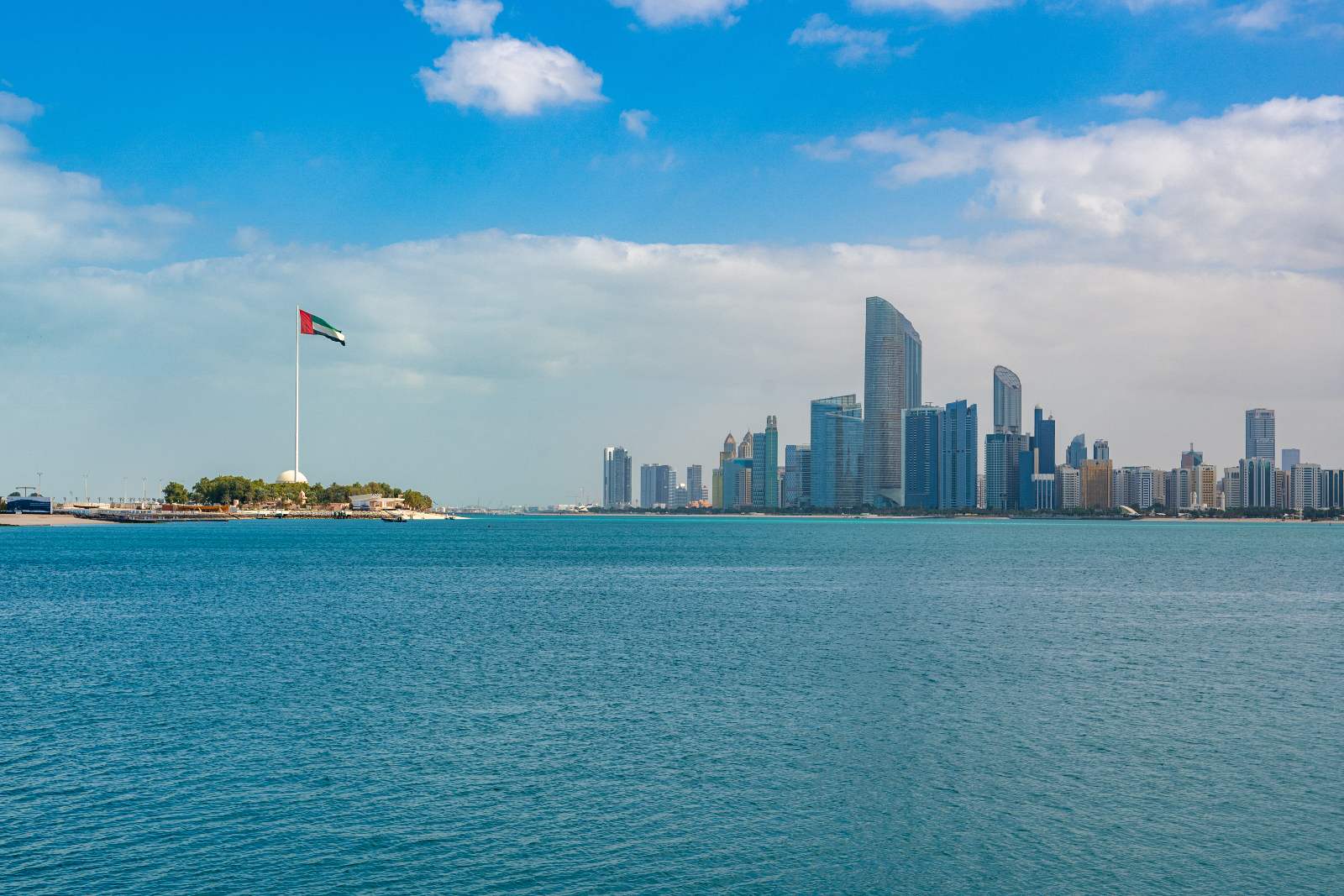
Global trade flows and supply chains have just about managed to emerge from the long shadow of the covid-19 crisis. Even now, key commodities are still some months away from heading back to normalcy. For confirmation, just ask carmakers about semiconductor supplies they need for all their fancy models.
But chances of a smooth ride for global trade in 2023 will hinge more on whether a recession will show up, in full force or even partially. Plus, recent floods and nature-linked crises will have their own bearing on commodity movements and, by extension, on their prices.
Globally, we have seen a decline on some of the leading indicators for trade, and demand for goods has slowed somewhat. Despite this, some markets have proven to be more resilient than others — the UAE is one of them.
During my recent visit, it was apparent how agile the government is in enabling businesses to rapidly adapt to the macroeconomic environment. The high oil prices, solid logistic capabilities and the strengths of intra-regional trade flows — especially with Saudi Arabia — coupled with a healthy local demand, have helped support the economy.
I believe global trade is now at a critical inflection point. Global supply chains have been under significant stress in the last two years; businesses have been impacted and these disruptions have resulted in a rethink of the relationship between clients and suppliers, including the need for nearshoring — or even in-country value creation — in an effort to ease the access to finance between clients and suppliers.
The market is accelerating towards more structured trade, especially on supply chain finance. We have seen increased interest from governments, public sector entities, multinationals, and large corporates to leverage their balance-sheets’ strengths to allow financing for the benefit of the economy and within their supply chains.
Supply Chain Finance (SCF) will continue to gain popularity during this period of uncertainty.
Financial institutions can play a pivotal role in facilitating trade, with around 40% of global goods traded being supported by bank-intermediated trade finance.
For HSBC, supporting international trade has been at the heart of our business model since we were founded in 1865. Today, we facilitate approximately USD 740 bn of trade each year. And trade remains key to our future ambitions.
Trade finance has for centuries been paper-based, but blockchain provides a way to boost efficiency, increase transparency, and streamline supply chains. Broader usage of technology to track shipments has taken hold, and blockchain is one among a number of underpinning technologies that are helping global trade evolve.
When blockchain technology is adapted at a large scale, it will have the power to transform the world of trade by improving speed of processes, customer experience and providing a paperless experience.
As the world’s largest trade bank, we have a key role to play in the wider transformation of global trade. We act as a catalyst to allow the most successful and disruptive technologies to energize the market, as well as provide an opportunity to unlock the future of trade.
Technology-driven efficiencies and the expansion to new digital platforms and channels are two of the major drivers of growth, and we have a responsibility to take such solutions to our clients by commercializing them and scaling things at pace.
We are seeing different regional trends. HSBC Global Research’s forecasts are for a slowed pace of global trade growth out to 2024 (3%), given the subdued demand outlook, particularly for goods in the West.
A rebound in China could potentially boost global trade and things could be more positive, but if there is weakness in the second-half of 2023 or early 2024, trade could slow again.
The GCC nonetheless enters 2023 from a position of strength. The region is probably the fastest-growing economic bloc in the world today, there is substantial investment in large scale infrastructure projects, and tourism is booming thanks to some of the best covid-19 management policies seen during the pandemic, all of which support robust local demand.
Looking at the UAE specifically, the domestic economy continued to rebound in 2022, mostly driven by high oil prices and tourism. Expo 2020 in Dubai and the 2022 FIFA World Cup in Qatar have assisted in driving a sharp rebound of visitor numbers to the region.
The budgetary performance has improved significantly this year, which clearly creates a supportive environment for governments in the UAE and across the GCC to deliver on their strategic visions. In MENA, it is estimated that about USD 4.3 tn of projects are planned or are underway across the region, which will help diversify the economy further. The investments across infrastructure, power and energy, transport as well as real estate and social services are continuing with a sense of urgency.
Additionally, in Saudi Arabia, 15 mega-projects are ongoing and acting as a further catalyst to an already dynamic GCC economy.
This op-ed was written by Vivek Ramachandran (LinkedIn), head of Global Trade and Receivables Finance at HSBC. HSBC’s column appears in Enterprise every second Monday. A version of this article first appeared in Gulf News.
LAST NIGHT’S TALK SHOWS
Last Night’s Talk Shows: A lot of money + foreign policy talk
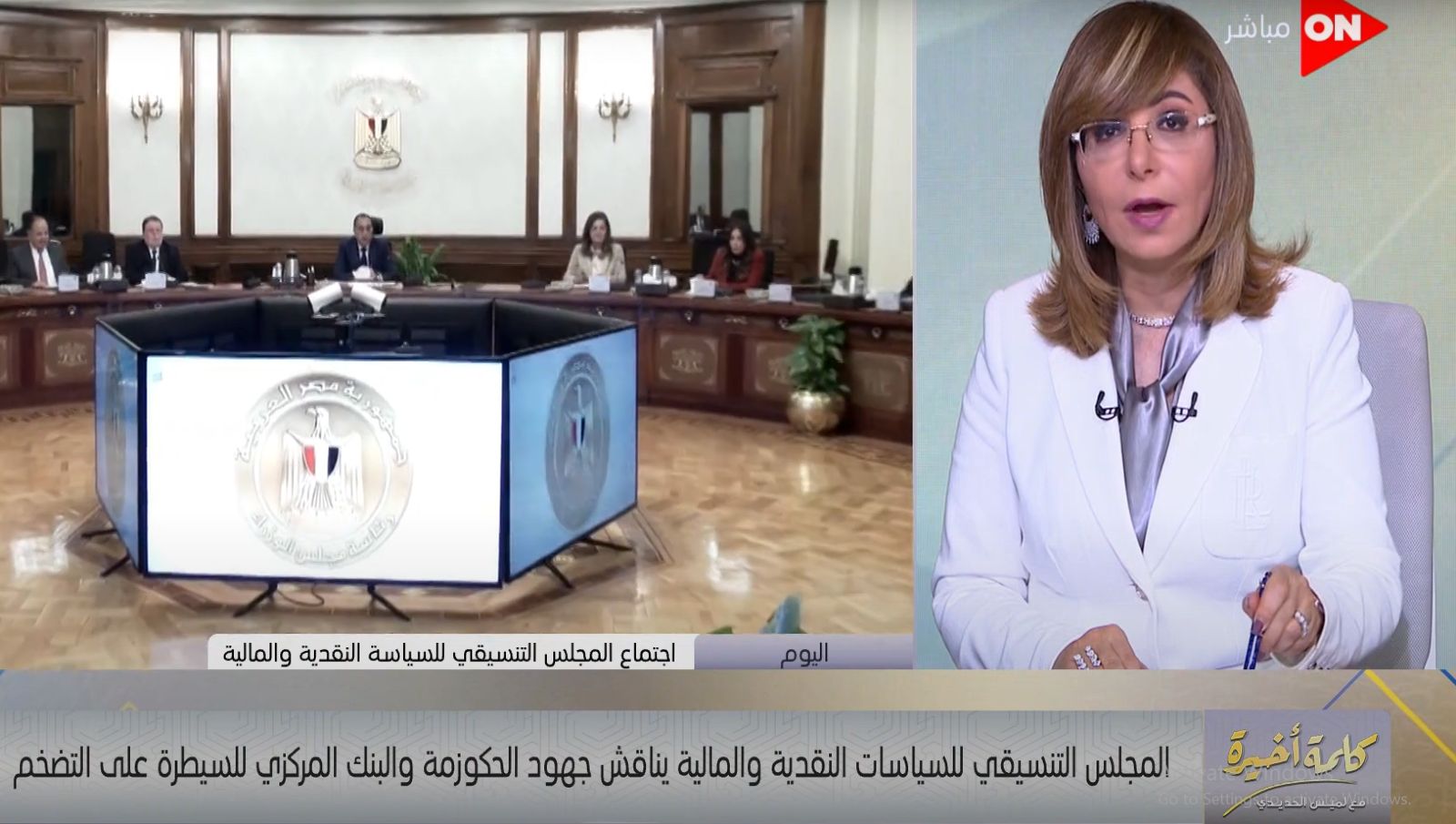
Talks of money and foreign policy took over last night’s talk shows, as the nation’s talking heads covered the central bank’s upcoming meeting, how our local startups handled the fall of Silicon Valley Bank, and yesterday’s Palestine-Israel talks in Sharm El Sheikh.
What will the CBE do next? Kelma Akhira’s Lamees El Hadidi (watch, runtime: 3:09) walked her viewers through the two options for the Central Bank of Egypt’s (CBE) upcoming meeting on 30 March. The bank will either increase rates or leave them unchanged, she said, adding that both will have major consequences on the government, the former ramping up the state’s borrowing costs and the latter fuelling further inflation.
Local startups weigh in on the collapse of SVB: Kelma Akhira’s Lamees El Hadidi held a roundtable with a number of prominent startup founders, including co-founder and CEO of used-car retailer Sylndr, Omar El Defrawy; CFO of fintech startup MoneyFellows, Hatem Sabry; and Lucky co-founder and co-CEO Ayman Essawy to see how they have been impacted by the recent collapse of Silicon Valley Bank (SVB) (watch, runtime: 2:32 | 3:09 | 4:02). The collapse of SVB should teach our local startups that they shouldn’t put all their money in one bank, investor Amr Awadallah told El Hadidi (watch, runtime: 1:59). Last week, we spoke to another set of local startup founders on how they have been impacted by the bank’s downfall.
ALSO ON OUR RADAR

DIPLOMACY-
Palestine and Israel have agreed to set up a “mechanism to curb and counter violence, incitement and inflammatory statements” during talks in Sharm El Sheikh attended by Egyptian, Jordanian and US officials yesterday, according to a statement. Israel has also agreed to postpone discussions on establishing new settlement units in the occupied West Bank for four months and to end authorizing illegal outposts for six months.
INVESTMENT-
More Russian investment incoming? President Abdel Fattah El Sisi sat with a Russian delegation headed by Deputy Prime Minister and Trade Minister Denis Manturov yesterday. The meeting focused on Russian investment and joint ventures in Egypt, Ittihadiya said. Among the priority industries: grains and food, manufacturing, agriculture, and energy, according to a readout from the Russian government.
A push for the Egyptian-Eurasian trade agreement: “Considerable progress has been made since the launch of this process in 2019 … we are looking forward to reaching the final agreements as soon as possible,” Manturov said.
CONSUMER FINANCE-
Abu Dhabi Islamic Bank (ADIB) Egypt intends to launch a digital consumer finance company in 2H 2023, and is working with the Finance Ministry to issue EGP-denominated sukuk.
FINTECH-
Mastercard is launching an e-wallet in Egypt with a telecom company.
PLANET FINANCE

Presight AI IPO in Abu Dhabi sees huge investor demand: Investors submitted orders worth almost USD 26 bn in Abu Dhabi data analytics firm Presight AI’s USD 496 mn IPO, Bloomberg reports. The company’s owners, AI and cloud computing firm G42, are selling almost 1.4 bn shares at AED 1.34 apiece. The company is expected to debut on the Abu Dhabi stock exchange on 27 March in what will be the stock market’s second listing of the year.
|
|
EGX30 |
14,681 |
-0.2% (YTD: +0.6%) |
|
|
USD (CBE) |
Buy 30.84 |
Sell 30.94 |
|
|
USD at CIB |
Buy 30.85 |
Sell 30.95 |
|
|
Interest rates CBE |
16.25% deposit |
17.25% lending |
|
|
Tadawul |
10,158 |
+1.8% (YTD: -3.1%) |
|
|
ADX |
9,650 |
+2.2% (YTD: -5.5%) |
|
|
DFM |
3,349 |
+1.3% (YTD: +0.4%) |
|
|
S&P 500 |
3,917 |
-1.1% (YTD: +2.0%) |
|
|
FTSE 100 |
7,335 |
-1.1% (YTD: -1.6%) |
|
|
Euro Stoxx 50 |
4,065 |
-1.3% (YTD: +7.2%) |
|
|
Brent crude |
USD 72.97 |
-2.3% |
|
|
Natural gas (Nymex) |
USD 2.34 |
-7.0% |
|
|
Gold |
USD 1,990.20 |
+2.6% |
|
|
BTC |
USD 27,980 |
+2.6% (YTD: +71.1%) |
THE CLOSING BELL-
The EGX30 fell 0.2% at yesterday’s close on turnover of EGP 926 mn (55.5% below the 90-day average). Regional investors were net buyers. The index is up 0.6% YTD.
In the green: Abu Dhabi Islamic Bank (+4.8%), Juhayna (+4.2%) and Credit Agricole (+3.7%).
In the red: Telecom Egypt (-6.1%), Fawry (-3.2%) and Cleopatra Hospitals Group (-3.1%).
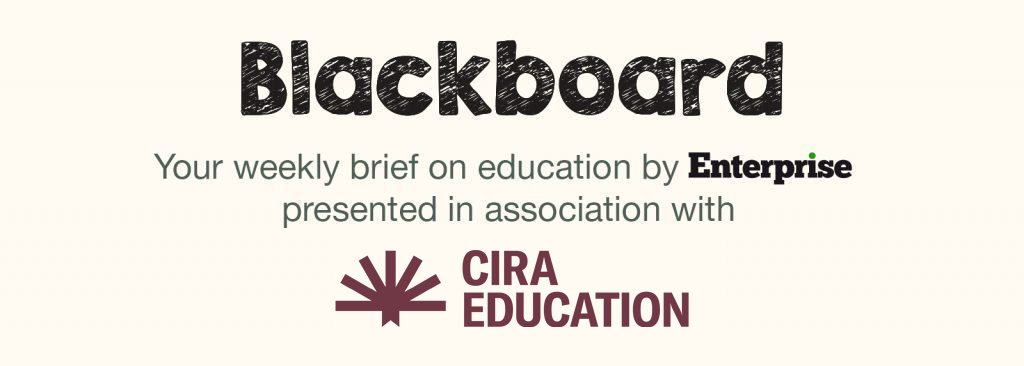

K-12 teachers in Egypt adjust to the rise of chatbots: ChatGPT, an artificial intelligence tool released in November by US-based OpenAI, has taken the internet by storm in just a few short months. The program, and other similar chatbots that have since emerged, can generate cogent responses to any prompt they are fed. While having several benefits for the professional world, the rise of these AI tools have raised fears in the world of education about their implications for teaching and monitoring students’ real performance. Despite not being available in Egypt, students here are able to access ChatGPT by bypassing the platform’s requirement of phone number from a location where ChatGPT is supported. Some teachers at K-12 schools in Egypt Enterprise spoke with are embracing the generative AI and have begun to dabble with it, while others have expressed concerns about it derailing their lesson plans. The technology has even raised existential concerns among some teachers regarding the viability of traditional schools and teaching roles.
One major concern among teachers is detecting AI-generated assignments: Teachers had gotten to a point where they were confident in their ability to detect whether a student had copied someone else’s work, by using plagiarism detection services like Turnitin before the emergence of chatbots, Nesreen Bassiouny, a high school and IB mathematics teacher at the American International School of Egypt (AIS) tells us. “I’m planning on subscribing to one of the AI content detectors and to check if any of the students have been using chatbots,” she told us.
AI content detection tools are not 100% accurate: Various AI content detection tools are available online, with varying degrees of accuracy. “I’ve run my own writing through, which I created when I was in my master's level program. It came back as AI-generated — and it's clearly not,” Clayton Boren, a fourth grade teacher at Schutz American School (SAS) told us. “It’s unclear to us how those programs are judging writing and what the formulas are behind it. It's not quite as obvious as some programs like Turnitin that look for already existing writing,” Boren said.
Most teachers agree trying to impose blanket bans on AI would be futile: “It's inevitably and inexorably the direction that we're going. You can't put the toothpaste back in the tube and so it's something that you have to accept,” Chris Blendheim, a high school language arts teacher at SAS told us.
If you can’t beat them, join them: Some teachers have toyed with using chatbots to speed up routine tasks such as leaving report card comments. “I have 85 students that I need to write 150-200 word comments for, so writing them becomes tedious,” Blendheim told us. “There's really only one or two reasons that a student would be receiving As, so I asked ChatGPT to give me a 150-word comment bank for a student who does very well with study habits and participation and it generated like 10 different comments and that gave me a foundation on which to build. I took those comments and tweaked them to fit the individual student,” he explained. Other teachers have also explored different ways to use ChatGPT, including creating lesson plans. “I had a chatbot generate a lesson plan for me just to try it out but I didn’t end up using it. The plan included resources, reading materials, timeframes and the sequencing of activities was logical,” Reeham Darwish, a humanities teacher and head of social studies at an international school told us.
Others have begun integrating it into classes and guide students’ usage of the tools: “What chatbots have allowed us to do is bypass students’ writer's block,” Boren told us. Students are being guided on how to use these generative AI tools to, for example, “generate a list of ideas for narrative essays,” Boren told us. Students can use these ideas as starting points for their assignments and teachers can then assess their implementation of the ideas and their language use in the final product.
A few teachers are worried about bots taking over their jobs or hindering students’ ability to learn: “It allows students to skip so many different steps: reading, analyzing, evaluating, and determining whether a source is biased,” says Farida Kassaby, who teaches business studies at the Modern English School in Cairo’s (MES) British section. Students already have access to infinite knowledge online, and chatbots or other AI developments coming into the mix are putting traditional schools in danger of becoming obsolete, she said. Darwish echoed a similar sentiment, saying, “The concept of traditional schooling as we know it is being pushed to the brink and [the emergence of chatbots] is a further push.” Some teachers have expressed concerns that their jobs could be at risk of replacement by these tools, Boren told us.
Others feel that although they can provide immediate responses to student queries, they do not replace the value of human interaction between teacher and student. Teachers have even been using it in class to develop student’s critical thinking skills through open-ended discussions. Several teachers expressed that they do not grade students solely on written assignments, and noted that programs such as Advanced Placement (AP) and IB require students to sit for handwritten, proctored exams that make up a significant percentage of their overall grade or score. Darwish assigns her students multi-stage, complex performance tasks that require her students to complete most of the planning phases in class under teacher supervision. These assignments go through feedback sessions the students are required to implement to ensure that their submissions are based on their own original thought and work that they’ve done in class, she explained.
Diversifying the types of assignments assigned: “Written assignments should only be one third of what you're grading anyway. If a student writes an AI-generated essay but they can also defend the essay in class, and they understand what it is they're saying when they're pressed and prompted, they can still demonstrate that they’ve learned something through the process,” Boren said. Performance tasks like giving presentations or creating a video should be given weight as well, he told us.
Looking forward: Given how new the technology is, teachers posed several interesting questions: “If a student creates an essay using a chatbot, does the work belong to the students? Are they plagiarizing a chatbot? How different does it need to be before it's the students' work? Is the prompting itself good enough evidence that the students knew the task at hand?” Boren asked. As the technology continues to evolve, many educators are keeping an eye on how chatbots continue to shape high school education in the future. “We just need time for the debris to settle and for us to get a sense of where the technology is going — and then how we’re going to be able to use it,” Blendheim said.
Your top education stories for the week:
- Higher education minister to face MPs: Higher Education Minister Ayman Ashour will face questions from MPs on the performance of state-owned universities and the shortage of doctors and medical supplies in university teaching hospitals tomorrow.
- Flat6Labs is investing almost USD 100 mn in African startups: Egypt-based venture capital firm Flat6Labs launched a USD 95 mn Africa-focused seed fund that wants to invest in more than 160 early stage tech startups over the next five years, including in education.
- New Egyptian business podcast: Two business students have launched their podcast Eh El Kalam (on YouTube), offering viewers vicarious mentorship from businesspeople pioneering their respective fields. Episodes are available in Egyptian Arabic.
CALENDAR
MARCH
March: 4Q2022 earnings season.
March: IMF to review USD 3 bn program.
March: Gov’t to launch the National Governance Index.
March: Palestine-Israel talks in Sharm El Sheikh.
Beginning of March: Rice to be added to the EMX.
18-20 (Saturday-Monday): Assistant Secretary of State for Near Eastern Affairs Barbara Leaf in Egypt.
19 March (Sunday): House reconvenes.
19-20 March (Sunday-Monday): PPP MENA Forum, Nile Ritz-Carlton, Cairo.
21-22 March (Tuesday-Wednesday): Federal Reserve interest rate meeting.
22 March (Wednesday): Ramadan trading hours in effect.
23 March (Thursday): First day of Ramadan (TBC). Maghreb will be at 6:08pm CLT.
26 March (Sunday): Senate reconvenes.
27-29 March (Monday-Wednesday): The first meeting of the COP transitional committee, focusing on adaptation, and loss and damage.
30 March (Thursday): Central Bank of Egypt’s Monetary Policy Committee meeting.
31 March (Friday): Finance Ministry to present draft budget to House of Representative by this date.
APRIL
April: GAFI to launch the country’s first integrated electronic platform to facilitate setting up a business.
April: President Abdel Fattah El Sisi's social support measures program to be implemented.
April: SCZone roadshow in China.
1 April (Saturday): Deadline for banks to establish sustainability units.
2 April (Sunday): National Paints Holding’s MTO for Pachin ends.
10-16 April (Monday-Sunday): IMF / World Bank Spring Meetings, Marrakesh, Morocco.
11 April (Tuesday): Deadline for NGOs to legalize their status.
15 April: Lamees El Hadidi’s startup competition show, El Forsa, closes applications.
16 April (Sunday): Coptic Easter
17 April (Monday): Sham El Nessim.
21 April (Friday): Eid El Fitr (TBC).
25 April (Tuesday): Sinai Liberation Day.
27 April (Thursday): National holiday in observance of Sinai Liberation Day (TBC).
30 April (Sunday): Tenth of Ramadan dry port tender deadline.
30 April (Sunday): Deadline for self-employed to register for e-invoicing.
30 April (Sunday): End of Mediterranean, Nile Delta oil + gas exploration tender.
Late April – 15 May: 1Q2023 earnings season.
MAY
1 May (Monday): Labor Day.
2-3 May (Tuesday-Wednesday): Federal Reserve interest rate meeting.
4 May (Thursday): National holiday in observance of Labor Day (TBC).
4 May (Thursday): IEF-IGU Ministerial Gas Forum, Cairo.
9-11 May (Tuesday-Thursday): First edition of the Arab Actuarial Conference, Cairo.
12 May (Friday): Expat car import scheme ends.
15 May (Monday): Enterprise Exports & FDI Forum, Four Seasons Hotel Cairo at Nile Plaza.
16-18 May (Tuesday-Thursday): Egypt will host its first conference on cybersecurity and defense intelligence systems (CDIS-Egypt).
18 May (Thursday): Central Bank of Egypt’s Monetary Policy Committee meeting.
20-21 May (Saturday-Sunday): eGlob Expo, St. Regis Almasa Hotel, Cairo.
22-26 May (Monday-Friday): Egypt will host the African Development Bank (AfDB) annual meetings in Sharm El Sheikh.
JUNE
7-10 (Wednesday-Saturday): The second edition of Africa Health Excon.
10 June (Saturday): Thanaweya Amma examinations begin.
12 June – 15 July (Monday-Saturday): Thanaweya Amma exams.
13-14 June (Tuesday-Wednesday): Federal Reserve interest rate meeting.
15 June (Thursday): Deadline for bids in EGPC’s mature oil fields tender.
19-21 June (Monday-Wednesday): Egypt Infrastructure and Water Expo debuts at the Egypt International Exhibition Center.
22 June (Thursday): Central Bank of Egypt’s Monetary Policy Committee meeting.
28 June-2 July (Wednesday-Sunday): Eid El Adha (TBC).
30 June (Friday): June 30 Revolution Day.
30 June (Friday): Egypt to exit Grains Trade Convention.
JULY
18 July (Tuesday): Islamic New Year.
20 July (Thursday): National holiday in observance of Islamic New Year (TBC).
23 July (Sunday): Revolution Day.
25-26 July (Tuesday-Wednesday): Federal Reserve interest rate meeting.
27 July (Thursday): National holiday in observance of Revolution Day.
Late July-14 August: 2Q2023 earnings season.
AUGUST
August: Hassan Allam Utilities + Agility to open Yanmu East logistics park.
3 August (Thursday): Central Bank of Egypt’s Monetary Policy Committee meeting.
22-24 August (Tuesday-Thursday): BRICS summit, Johannesburg, South Africa.
SEPTEMBER
September: IMF to review USD 3 bn program.
19-20 September (Tuesday-Wednesday): Federal Reserve interest rate meeting.
21 September (Thursday): Central Bank of Egypt’s Monetary Policy Committee meeting.
26 September (Tuesday): Prophet Muhammad’s birthday (TBC).
28 September (Thursday): National holiday in observance of Prophet Muhammad’s birthday (TBC).
OCTOBER
6 October (Friday): Armed Forces Day.
13 October- 20 October (Friday-Friday): The sixth edition of El Gouna Film Festival (GFF).
Late October-14 November: 3Q2023 earnings season.
31 October – 1 November (Tuesday-Wednesday): Federal Reserve interest rate meeting.
NOVEMBER
2 November (Thursday): Central Bank of Egypt’s Monetary Policy Committee meeting.
15-24 November (Wednesday-Friday): Cairo International Film Festival, Cairo.
DECEMBER
12-13 December (Tuesday-Wednesday): Federal Reserve interest rate meeting.
21 December (Thursday): Central Bank of Egypt’s Monetary Policy Committee meeting.
EVENTS WITH NO SET DATE
2023: The inauguration of the Grand Egyptian Museum.
2023: Egypt will host the Asian Infrastructure Investment Bank’s Annual Meeting of the Board of Governors in 2023.
1Q 2023: Egypt + Qatar to launch joint business forum.
1Q 2023: FRA to introduce new rules for short selling.
1Q 2023: Internal trade database to launch.
Summer 2023: EGX to launch a shariah-compliant index.
2H 2023: Egyptian government expected to sign agreements with a consultant for the EuroAfrica electricity interconnector.
2H 2023: President Abdel Fattah El Sisi and Turkish President Recep Tayyip Erdogan expected to hold a summit.
4Q 2023: EGX to launch its new futures exchange.
2Q 2025: Safaga Terminal 2 to initiate operations.
Enterprise is a daily publication of Enterprise Ventures LLC, an Egyptian limited liability company (commercial register 83594), and a subsidiary of Inktank Communications. Summaries are intended for guidance only and are provided on an as-is basis; kindly refer to the source article in its original language prior to undertaking any action. Neither Enterprise Ventures nor its staff assume any responsibility or liability for the accuracy of the information contained in this publication, whether in the form of summaries or analysis. © 2022 Enterprise Ventures LLC.
Enterprise is available without charge thanks to the generous support of HSBC Egypt (tax ID: 204-901-715), the leading corporate and retail lender in Egypt; EFG Hermes (tax ID: 200-178-385), the leading financial services corporation in frontier emerging markets; SODIC (tax ID: 212-168-002), a leading Egyptian real estate developer; SomaBay (tax ID: 204-903-300), our Red Sea holiday partner; Infinity (tax ID: 474-939-359), the ultimate way to power cities, industries, and homes directly from nature right here in Egypt; CIRA (tax ID: 200-069-608), the leading providers of K-12 and higher level education in Egypt; Orascom Construction (tax ID: 229-988-806), the leading construction and engineering company building infrastructure in Egypt and abroad; Moharram & Partners (tax ID: 616-112-459), the leading public policy and government affairs partner; Palm Hills Developments (tax ID: 432-737-014), a leading developer of commercial and residential properties; Mashreq (tax ID: 204-898-862), the MENA region’s leading homegrown personal and digital bank; Industrial Development Group (IDG) (tax ID:266-965-253), the leading builder of industrial parks in Egypt; Hassan Allam Properties (tax ID: 553-096-567), one of Egypt’s most prominent and leading builders; and Saleh, Barsoum & Abdel Aziz (tax ID: 220-002-827), the leading audit, tax and accounting firm in Egypt.

